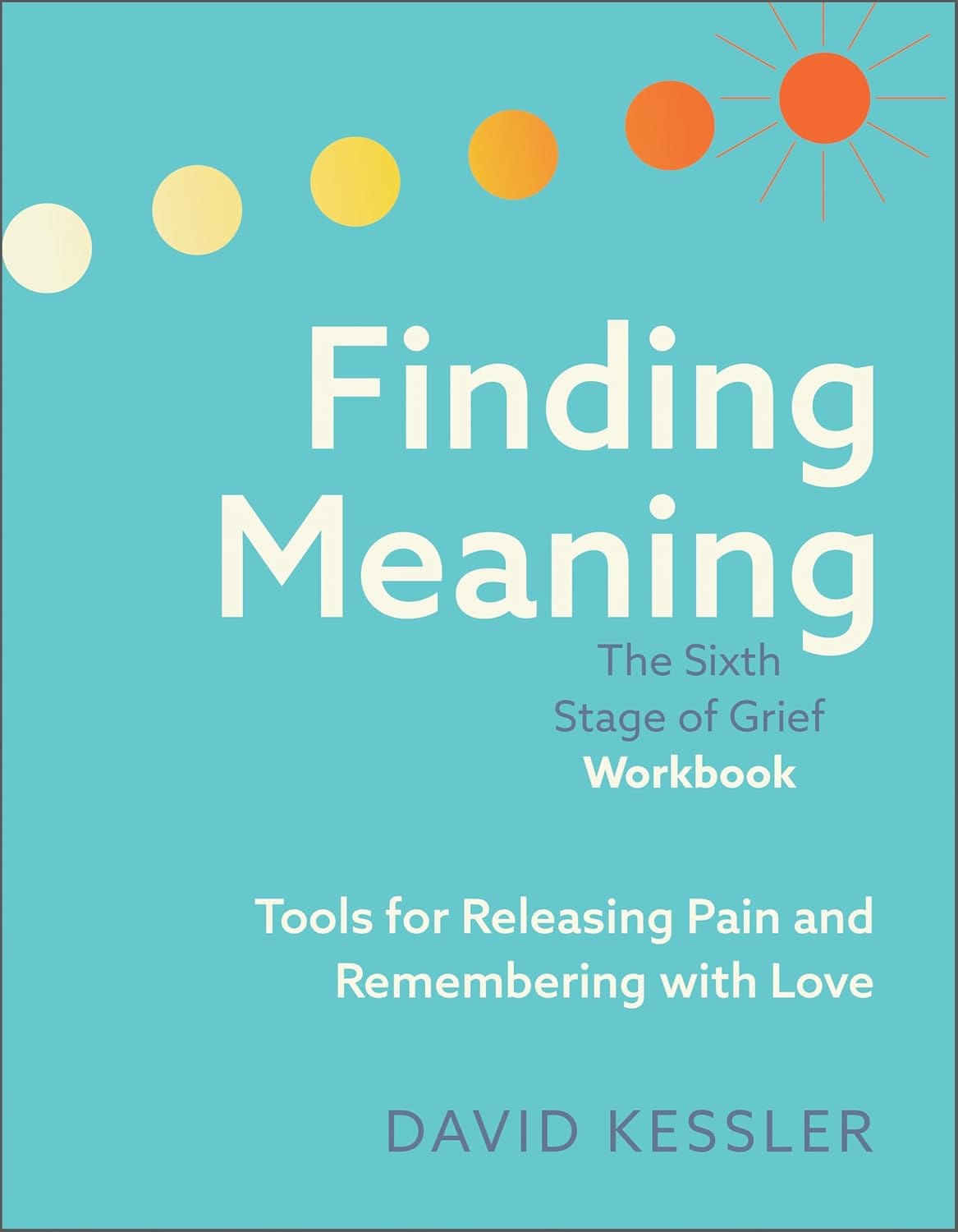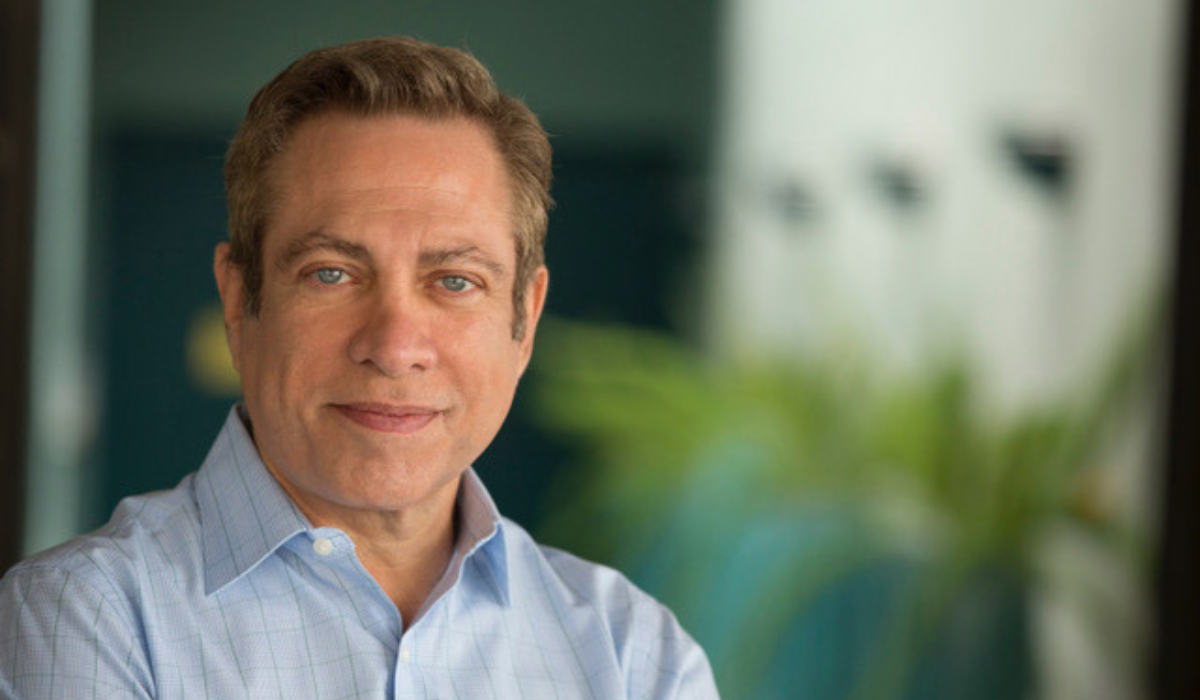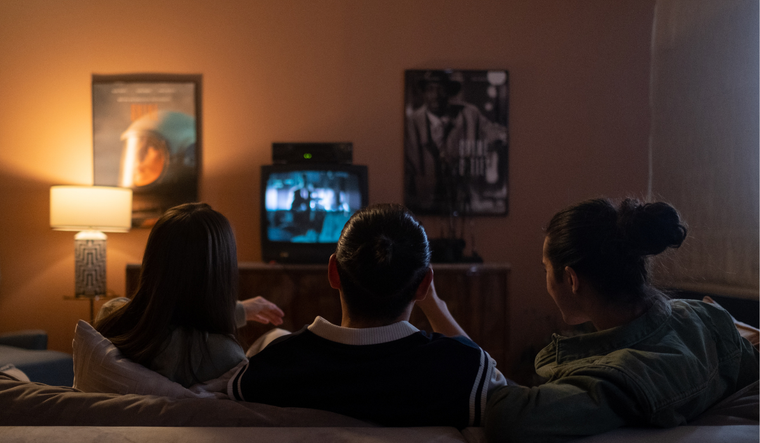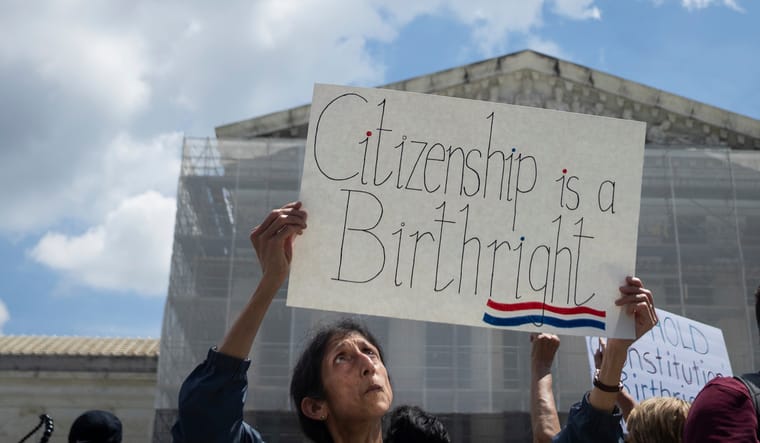How Do We Navigate All the Sudden Tragedy in the News? Grief Expert David Kessler Offers His Helpful Tools
International grief expert and noted author David Kessler has spent decades working with thousands of people experiencing the depths of their grief. He knows the pain of grief professionally and personally, and he knows the path to finding hope and healing. In this exclusive essay for The Sunday Paper, Kessler, whose forthcoming book is Finding Meaning: The Sixth Stage of Grief Workbook: Tools for Releasing Pain and Remembering with Love, offers solace and wisdom for navigating the recent tragedies in the world and supporting those we love.
We are all reeling from the horrible news of another school shooting. This time, it was in Georgia when four people were killed at a high school. And right after NHL star Johnny Gaudreau and his brother Matthew, who were riding their bikes on the eve of their sister's wedding, were killed by a drunk driver.
Our world is full of tragedies in so many ways, on so many fronts. We are facing all this now as we approach the 23rd year after the tragedy of September 11.
Sudden deaths are unique in their intensity and shock. They are tragic and unexpected. Grief is often heightened when it comes out of the blue. In the story of these two brothers, there is the painful twist that they were at a celebration, only to have their lives cut tragically short.
But sudden death is not anything new. All murders, assassinations, terrorist attacks, and wars are sudden deaths. Accidents and many illnesses, such as heart attacks, are sudden, too. A huge complicating factor is the mind grappling with how someone can be here for dinner and gone by breakfast.
We know there is no timeline in grief; when you mix it with suddenness, it can bring on a shock and higher intensity of pain for a much longer time.
There's also something even more heartbreaking about an abnormal event happening during a regular event. The brothers were riding their bikes! In the Georgia shooting, the children, teachers, and staff were going to school at the beginning of a new school year.
Parents are sending their children back to school, not with joy but with fear. It unnerves our minds, which always seek control. After a tragedy, we have difficulty finding control in life's everyday tasks. Those everyday tasks can feel dangerous.
We want to control everything and keep ourselves and our loved ones safe. Yet, we can't stop going to school, walking, or riding bikes. We may think that we should always stay on the sidewalk. Unfortunately, there are plenty of examples of cars going on sidewalks. The mind is always trying to assert some control over the uncontrollable.
That makes these out-of-control circumstances so much more difficult to accept. There are so many contributing factors when it comes to sudden death. We may wonder:
- Whether it was nature-made or human-made. Nature creates earthquakes and tornadoes. Nature is entirely out of our control. But some things are human-made, such as a bomb, a shooting, or a drunk driver.
- The degree of intentionality. Were our loved ones targeted? Were they random victims? (Just a note: please don't ever say to someone in grief your loved one was in the wrong place at the wrong time. No, the perpetrator was in the wrong place at the wrong time doing the wrong thing.)
- Whether it was preventable. Could we have prevented it most of the time? In my experience, the belief that something is preventable isn't true, even when we may think we could have changed the circumstances. There are always people who change them and still have the same death.
- If there was suffering. Did they die instantly, or was it a slow death? Sudden death doesn't always mean an instant death.
- About the scope. Was it one person? Was it many people? Interestingly, one of the Gaudreau wives shared that she was comforted that they were together in heaven.
- The degree of expectedness. Was it expected? Elderly folks can have sudden, unexpected deaths, even though we know they will die someday. And sudden deaths are not expected.
These factors all shape the complexity of our grief. As I mentioned, these aren't new events, whether we just think back to Kobe Bryant and many well-known people who died suddenly or well-loved people in our own families.
And again, all this is happening as we approach September 11. My friend Berry Berenson-Perkins boarded a flight on September 11, excited to come home and see her kids. I was excited because I was a new father, and she was planning to meet my children on that trip. Her plane was one of the planes that hit the Trade Towers.
In grief, that's just as true about your friends and family who had a sudden death decades later. There is no forgetting in grief, and one of the cornerstones is that grief must be witnessed. Both wives of the Gaudreau brothers have talked about their grief on social media. That's why we naturally gather and have vigils. They want others to know and to see the enormity of what they have lost. We need to have our pain reflected in the eyes of another person.
Supporting Our Children During Sudden Tragedies
All of us who are watching these events unfold on TV are experiencing vicarious grief and trauma. Years ago, when I worked in a hospital system, there was a child brought into the emergency room who was killed while riding their bike. I went home that day and told my children that we would put the bikes away for a while. Eventually, in a few days, I brought the bike back out, realizing that fear doesn't stop death. Fear stops life. We must go on living despite the risk.
Still, these losses unnerve all of us who must send our kids to school and watch them ride bikes, visit shopping malls, and do everyday activities. Our kids get worried, and we get concerned about how they can process the grief around sudden death. We often don't know how to support our children when these horrible events happen. I always share these things with parents to help:
- Don't shield your kids. Talk to them. You may not allow your kids to watch TV or be on social media and hear the bad news. But I promise you, they still know about it from other kids. There is no way to shield kids from these tragedies; it's essential we don't. So, some tips are: Don't try to keep bad news from your kids. Instead, talk to them about what happened. When should you begin having these conversations? When your kids are old enough to talk to other kids about the news.
- Keep normal routines. Help your kids understand that things are possible but not probable. Remind them that parents are doing everything possible to keep the world and their schools safe.
- Use these tragedies as a teaching moment. Remember to always be alert. Tell your kids to ride bikes in safe areas and encourage awareness in school.
Supporting Loved Ones Facing the Grief of Sudden Death
For all of us adults who will be supporting friends and family through grief, just know grief has a longer shadow than most of us think. And a sudden death's grief is often longer and more intense. Remember to meet them where they are.
The challenges of facing a sudden death are immense. Someone who is a sudden death survivor may experience:
- Intensified grief. The shock will be longer. They may look like they're doing well, yet the pain will hit later.
- The shattering of their normal world. In their mind, the world was probably safe. Now, they will face issues around finding safety in the world again.
- Secondary losses. We don't just grieve the person who died, but so much more. The person who died may have played roles including companion, husband, wife, dad, mom, sibling friend, or confidant.
Sudden deaths are often filled with guilt. There are always factors in every action we take, so we naturally think, What if I had told them not to ride the bike? If I had joined them, I would have seen the car coming. What if I had kept them home from school?
The truth is, we go on bike rides because we enjoy them. We go to school because it's part of life. We go to work to earn a living and to find purpose. We can't take these things away to find control. We often say things to ourselves that are distorted in grief because our minds would always rather feel guilty than helpless. And sudden death often leads us to feel very helpless in the world.
When we are left with such a lack of control, we feel there is nothing else to do but feel guilty. I have written extensively about finding meaning in grief. One of the confusing things is when someone hears meaning, they immediately say, "There is no meaning in a drunk driver killing two brothers. Or in a school shooting or a terrorist attack." This is true. Meaning isn't in the tragedy. The meaning is what we do after the tragedy. The pain can fuel change.
Moving Forward with Meaning
This year, I will be honoring those who died on 9/11 in a unique way. I, along with others from two fantastic organizations, Tuesday's Children and 9/11 Day, will be participating in ringing the NY stock exchange bell on September 11. We will do this in remembrance of that day and all who died, including many who were first responders. I have been privileged to counsel so many people who lost loved ones on that tragic day.
We will never forget those who died tragically and suddenly on September 11. We will never forget the students and teachers who died in this recent shooting and in previous ones. We will never forget the young men killed on their bikes. We remember them all as we do all of our loved ones.
These tragic events become a reminder to all of us. We must continue supporting one another and doing our part to make the world safer. This is the meaning. We must all be each other's brothers and sisters keepers in this scary world.
This is all our responsibility and privilege.

David Kessler is one of the world's foremost experts on grief and loss and the founder of www.grief.com , which has over five million visits yearly from 167 countries. His personal experience as a child witnessing a mass shooting while his mother was dying in a hospital helped him begin his journey. For most of his life, he has taught physicians, nurses, counselors, police, and first responders about the end of life, trauma, and grief. He is the author of six books, including the bestselling book Finding Meaning: The Sixth Stage of Grief.
Kessler's forthcoming book is Finding Meaning: The Sixth Stage of Grief Workbook: Tools for Releasing Pain and Remembering with Love, which aims to help you understand your unique and personal experience with grief and begin to work through the loss, releasing the hurt, and learning to grieve with more love than pain. The Finding Meaning workbook is filled with self-reflective exercises, journaling opportunities, warmhearted guidance for releasing pain, tools for guilt and overwhelming feelings, and more. You can pre-order your copy of Finding Meaning: The Sixth Stage of Grief Workbook: Tools for Releasing Pain and Remembering with Love here .
Please note that we may receive affiliate commissions from the sales of linked products.



